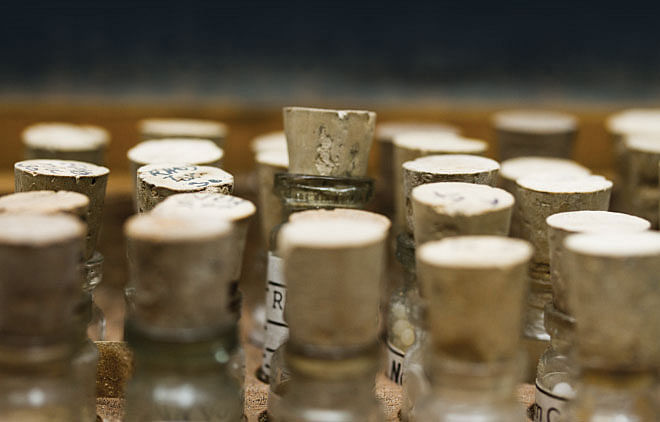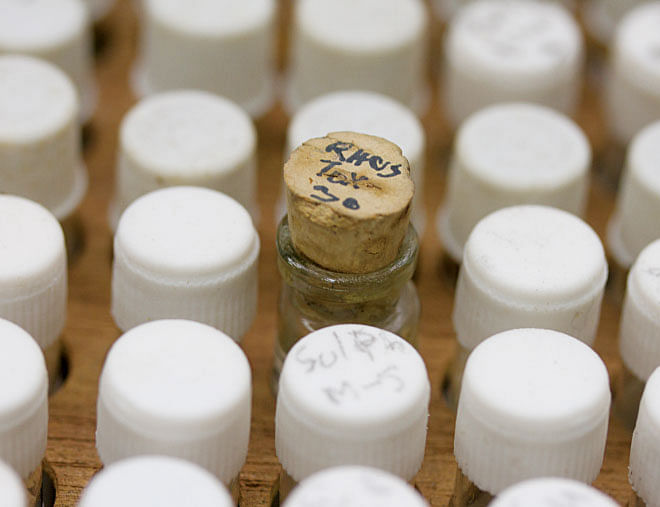HOMEOPATHY faith, fact or fiction?

Two centuries have passed since its inception; but it is yet as controversial as ever. Homeopathy is highly debated. It has been crowned and cursed, accepted and rejected and considered as a science and a pseudoscience -- by many scientists and laymen alike.
Many of us have that wooden box of homeopathic remedies in our homes. This very plain-looking box becomes the centre of attention when someone falls sick in my family. The 'magic box' is flipped open, showing the compact cabinet inside -- tiny holes for keeping the transparent bottles that contain those sweet pills in them.
Put forward in 1796 by a German physician named Samuel Hahnemann, homeopathy stands on a philosophy called similia similibus curentur: 'let like be cured by like'. The Law of Similars holds that substances that cause healthy people to get symptoms can cure the medical condition that has these symptoms.
When you dice onions, you have watery eyes and a running nose. When you have hay fever, you face similar problems. A homeopath will tell you that since onions have had similar effects on you when you were healthy, onions should be able to cure the problem that is showing those very effects of running nose and watery eyes. He'll probably prescribe you Allium Cepa, a homeopathic remedy made with onions.
There are numerous homeopathic remedies. Many people think that all the medicines in the world are to be found in the special wooden 'magic box'.

Anyway, this philosophy of 'letting like be cured by like', which has been the cornerstone of homeopathy, has ancient origins. Hippocrates, the Greek who is considered by many as the father of medicine, the man who arguably designed the Hippocratic Oath (from which the Declaration of Geneva, the oath physicians take today, is formulated) once wrote, “By similar things a disease is produced and through the application of the like is cured.”
But as a child, all I knew and cared about in homeopathy was the amazing taste of remedies. Nothing can cheer up a child more than these globules of 'candy' when he's ill.
But the remedies don't just come in sweet flavours. There are hot and spicy remedies too -- in the form of rectified spirit -- and to some, they taste even better!
What's hard to accept is the levels of dilution homeopathic remedies see. The original substance, the real medicine that is, goes through colossal dilutions (and a unique vigorous shaking). Often, the homeopathic remedies are diluted to the point where the original substance becomes chemically non-existent.
Then why on earth would homeopathy work, naysayers rightfully argue. The answer is not very clear. Homeopaths believe that even though the substance is not there, the 'energy' of the substance is; and it is this 'energy' that aids the healing energy and mechanisms of the body. The dilution and the vigorous shaking create the healing power homeopathic remedies have.
A proper understanding and knowledge of how it works is still underway, and many think that the answer may even lie in the realm of quantum physics.
What we have in the present is a romantic idea, called the memory of water. This rather bizarre theory claims that after a substance is heavily diluted, even to the point where conventional chemistry cannot find any trace of the substance anymore, the water somehow 'remembers' or 'retains a memory' of the substance it once hosted, in the form of energy perhaps.
The world is divided between believers and non-believers. Many of us have faced heated arguments ourselves. “I don't care what people say, but I have benefitted from homeopathy,” a very common line by believers. Indeed, a lot of people have benefited, and they have become loyalists.
That list includes movie stars, the royal family of Britain, politicians, Noble laureates and so on. David Beckham is a fan of Arnica, a homeopathic remedy that helps in relieving pain. John D. Rockefeller was also a believer in homeopathy.
Has homeopathy been playing these intelligent people for fools? “Placebo effect,” the now intimidated non-believers may say.

Placebo effect, for those who don't know, is the actual or felt improvement in health that occurs due to a fake medical treatment that has been prescribed. Believing is everything; your mind can do wonders for your body.
In the book, Follies and Fallacies in Medicine, Skrabanek and McCormick said, “The physician's belief in the treatment and the patient's faith in the physician exert a mutually reinforcing effect; the result of a powerful remedy that is almost guaranteed to produce an improvement and sometimes a cure.”
I remember, as a child, whenever I complained I felt sick, my mother wore her thick glasses, took out a green, fat book for reference while examining me with curious intensity, asking peculiar questions, which I feared, were intended to figure out whether I was actually sick or just lying to skip a day at school. She gave me a remedy sometimes and they did work, I believe. My mother is an amateur homeopath.
But may I ask you, good sir, that if placebo effect is what homeopathy is all about, how can it work with infants and animals? Hence, the placebo effect may not be a strong argument.
A session with a homeopath can last hours. The doctor asks you all sorts of questions. This is because a homeopath believes that no two patients are the same, and it is only after rigorous knowledge of a person's medical history, status, mental and physical well-being, individual likes and dislikes will a homeopath prescribe a remedy.
Perhaps one day, homeopathy will gain mass acceptance of scientists and laymen alike. Perhaps it'll always remain an issue of debate. Between these two extremes will be people like you and me, who cherish homeopathy as an interesting art and a unique medical doctrine, having a beautiful magic of its own.
Disclaimer: This article was written from a point of general interest for our readers; Star Lifestyle neither endorses nor discourages the use of homeopathy.

 For all latest news, follow The Daily Star's Google News channel.
For all latest news, follow The Daily Star's Google News channel. 




Comments